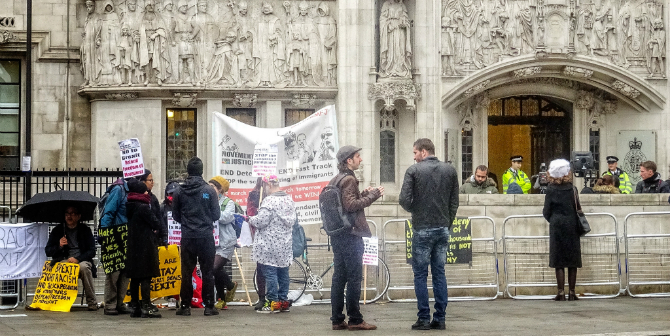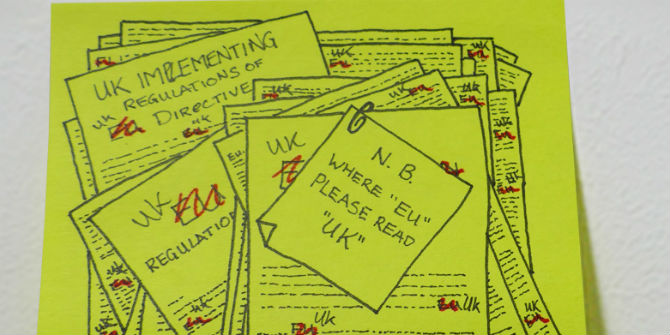
Who should be in control of the Brexit process? Nikos Skoutaris (UEA) explains the current dynamics of the UK’s constitutional conundrum.
Famously, the motto of the Leave campaign was ‘Take Back Control’. If we wanted to sum up the various constitutional challenges that Brexit has been posing we could say that most of them are precisely centred around the question who exactly should ‘take back control’.
For instance, does the fact that a referendum was organised mean that an element of popular sovereignty has been introduced in the UK constitutional order? And does that newly introduced aspect of popular sovereignty trump the traditional parliamentary sovereignty over this particular subject? In other words, is it the people or the Parliament that controls the form of Brexit?

With regard to the territorial constitution, should the powers that are currently exercised at the EU level be repatriated and controlled by Westminster? Or should they be allocated and distributed in accordance with the relevant devolution acts?
Finally, concerning the horizontal separation of powers, the Supreme Court in the first Miller case held that it is the Parliament and not the government that has the power to trigger the Article 50 TEU process. Next week, the only UK court that has jurisdiction over all four constituent nations will decide another fundamental question concerning the balance of powers between the legislature and the executive. Can the government suspend Parliament for an extended period of time even if this happens because it wants to curtail the power of Westminster to scrutinise the most important decision that the state has taken in a number of years? The Scottish Court of Session held that the prorogation was unlawful ‘because it had the purpose of stymying parliament’ while the English High Court decided that this is a political question that cannot be adjudicated by courts.
No matter what the decision of the Supreme Court will be, such case sheds light on the fact that any disentanglement of highly integrated legal orders is a very sophisticated, arduous and time-consuming exercise. Even the people that have suggested in the past that Brexit would be ‘the easiest deal in history’ should by now be convinced.
This post represents the views of the author and not those of the Brexit blog, nor the LSE. Image: Public domain
Dr Nikos Skoutaris is a Senior Lecturer in EU law, UEA. His website focuses on Secessions, Constitutions and EU law. Follow him on twitter.







Unfortunately the electorate lost control to Parliament in 2013, when Parliament voted not to update constituency boundaries in accordance with the recommendations of the independent Boundary Commission. As a consequence Mrs May entered office with a majority of 12 when it should have been 32.
Take back control as to prior to 1992 at least to when the uk was railroaded into the eu by john major via the maastrict treaty without mandate, or referendum.